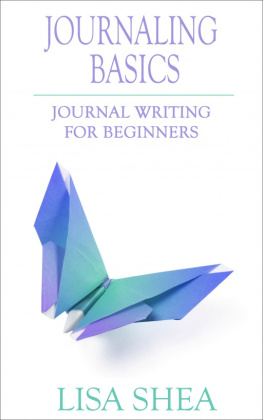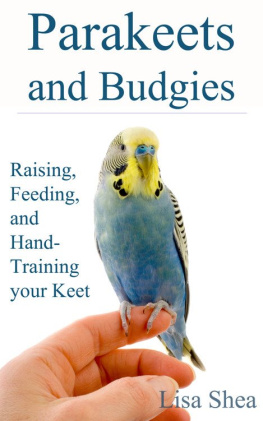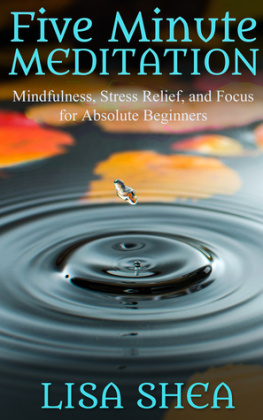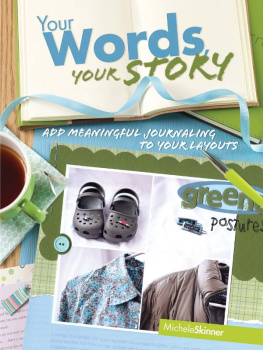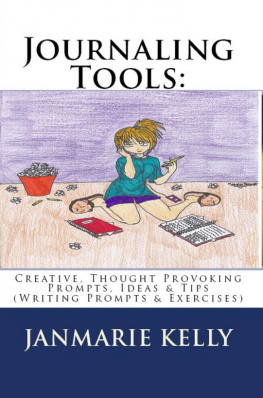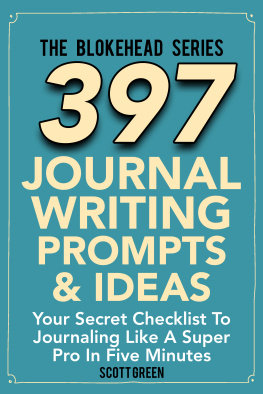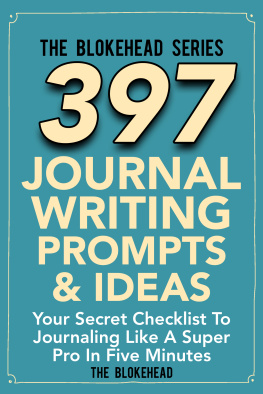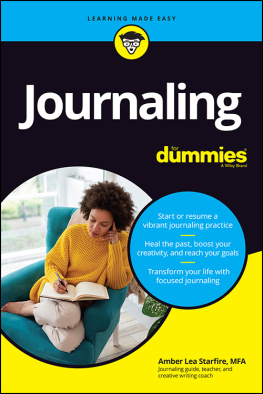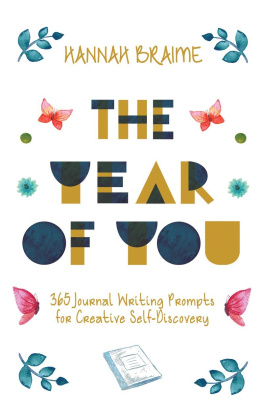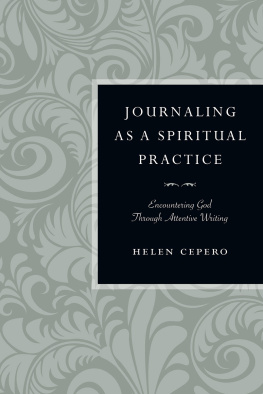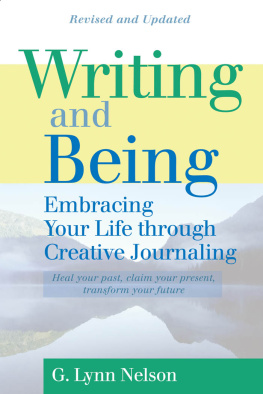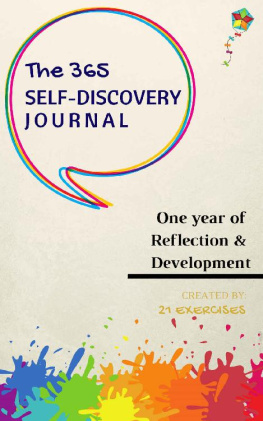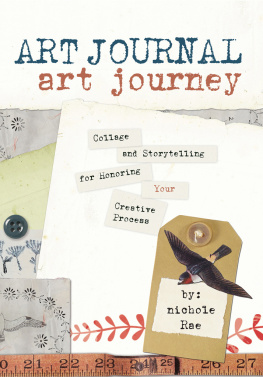Journaling Basics
Journal Writing for Beginners
Lisa Shea
Copyright 2014-5 by Lisa Shea / Minerva WebworksLLC
All Rights Reserved
Cover design by Lisa Shea
Book design by Lisa Shea
Visit my website at LisaShea.com
Amazon: B00MHXC3FI
Lulu: 978-1-312-41679-6
SmashWords 9781311916303
No part of this book may be reproduced in anyform or by any electronic or mechanical means including informationstorage and retrieval systems, without permission in writing fromthe author. The only exception is by a reviewer, who may quoteshort excerpts in a review.
~ 4 ~
First Printing: August 2014
All author's proceeds of the Journalingseries benefit battered women's shelters.
I am not a medical doctor. Please consult atrained professional before you attempt any life changes or if youhave discomfort.
Every day is a new adventure.
Reach for your dreams!
Journaling Basics
Introduction
The first sentence cant be written
Until the first sentence is written.
-- Joyce Carol Oates, WD
Journals. The word brings to mindsomething mystical and magical, something which unlocks the hiddensecrets within us and releases a new blossoming of power andstrength. Perhaps we imagine curling up on a velvet cushion againsta sun-streaked window, pouring our thoughts out into aleather-bound diary. Maybe we dream of sprawling beneath a largeoak tree, unfolding our glorious future. Maybe what we need rightnow is simply a laptop, a few moments of quiet, and the ability torelease the pain and hurt which has for so long been trapped withinus.
It is all journaling.
There are countless books out there that willinsist journaling is only right if its done the authors way. Ajournal must follow, exactly, a specific method. A journal must bedone in a certain kind of book or binder. Each page must be laidout a precise manner. Authors will tell you that journals arentdiaries. Journals arent letters to yourself. Journals arent arent arent.
Ive been journaling for nearly forty years from when I was quite a tiny girl. It seemed natural to me to writedown my thoughts, hopes, and dreams in order to process andorganize them. What Ive found in all these years of experiments,explorations, and extravaganzas is that only you can saywhat journaling means to you.
We are all different people. We all havedifferent needs. We come from different backgrounds and we relateto different techniques.
Some people thrive with three-ring binders.Thats great! Others adore the feel of laptop keys beneath theirfingers. Some like a strict schedule of writing for thirty minuteseach evening about what the day held and their thoughts on thatday. Others favor a free approach of writing whatever, whenever,however.
Thats OK.
This journal is for you. Not for somedistant author; not for the family member who may never trulyunderstand you. Its for you and you alone. Therefore the onlyimportant thing to figure out is which style works best for you.There are no rules to break. There are no mandates to chafeagainst. This is all about you. Its about releasing your fears,easing stress points, and creating a smooth flow in your life sothat you can achieve your dreams and find the serenity that youdeserve.
It all begins with this one step.
Lets get started on the delightful, warm,soul-enriching world of journals!
Lisas Note:
Youll hear the following message throughoutthis book: I feel strongly that only you can decide what isbest for you. This is true in so many ways. That being said, Iimagine part of why you picked up this book is youre curious aboutmy point of view on things. Ive been journaling for decades andyoud like to know what Ive found works for me.
Therefore, Ill include my own preferences atthe end of many chapters here. Please keep in mind that justbecause they work for me doesnt mean theyre right for you! Sure,give them a try if you wish, but also be open to the alternatives.Its only through trial runs that we determine what works best forus.
I am extremely open to all feedback and ideason improving this information. I post regularly about writing andself-expression on my various social networking sites, so theprocess of learning is ongoing. Together we help each otherthrive.
I feel strongly about helping batteredwomens shelters (the cause this project supports). The more weimprove the books message of self-exploration, the more we helpourselves and others!
What Is Journaling?
Put simply, journaling is the act of yourecording your thoughts on something. It could be the days events,like a diary. It could be thoughts on a book youve read. It mightbe memories of a dream. Perhaps its your hopes for your future.All of that and more is journaling.
The word journal comes from the Latin worddiurnalis. The root of this word means daily. Thediurnalis was the book that tracked the times people said theirprayers each day. So in a way it was a diary. Soon this documenttook on more life, recording things other than those prayers.
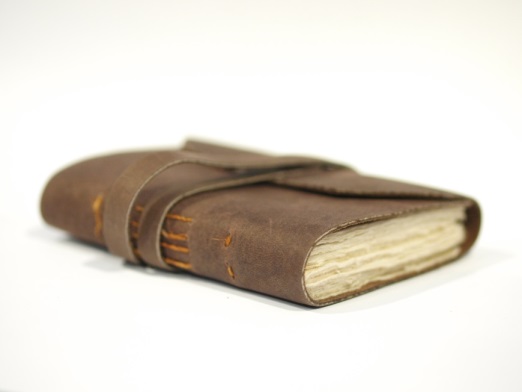
Journaling has been done since humans learnedto write, and many famous people have enjoyed journaling. Leonardoda Vinci kept a notebook. Anne Franks thoughts provide a poignantview into her too-short life. Bob Dylan liked to jot down ideas.Matsuo Basho, famous for his haiku, kept journals of histravels.
Your journaling can open up a wonderful newworld to you!
Journaler vs Journalist
While it might seem that a journalist issomeone who journals, the word journalist is already stronglyassociated with a professional who writes for a newspaper. This isgenerally a different type of writing from someone who is keeping aprivate journal.
For that reason, many journalers prefer thetitle journaler or simply writer. It helps keep thatdistinction clear.
You can call yourself whatever you wish!Labels in life can be so challenging. Go with what makes youhappy.
Non-Electronic Journaling
A book is simply the container of an idea
Like a bottle, what is inside the book is whatmatters.
-- Angela Carter
A journal is, at its core, a collection ofyour thoughts, ideas, ruminations, ponderings, tantrums,aspirations, and more. It is the innermost part of you pouring outso you can poke at it, ponder it, and make some sense out of thejigsaw puzzle pieces.
We all have our styles we enjoy. Sometimesweve been trained one way by our parents or teachers and donteven realize that we would vastly prefer something else until wetry it. So I suggest testing out each of these methods for a weekor more.
Give it a chance. Let yourself get throughthe initial settling process. Theres no rush here. Journaling issomething that stays with you for your entire life.
Even if youre an experienced writer, itmight be a great time to start a fresh set of experiments.Sometimes we can get stuck in a rut or too used to the way thingshave always been. Experimenting at different stages of our life canreap great rewards.
Always be open to change!
Finding the ideal for you journalingsetup can mean the difference between falling in love withjournaling and abandoning it out of frustration. For those who havejournaled in the past, it can revitalize your passion.
Lets start with a variety of non-electronicoptions for journaling. Its a good idea to experiment with andcome to be familiar with these styles. They will serve you welleven when batteries run dead, when a snowstorm takes out yourpower, and when you simply wish to unplug.

